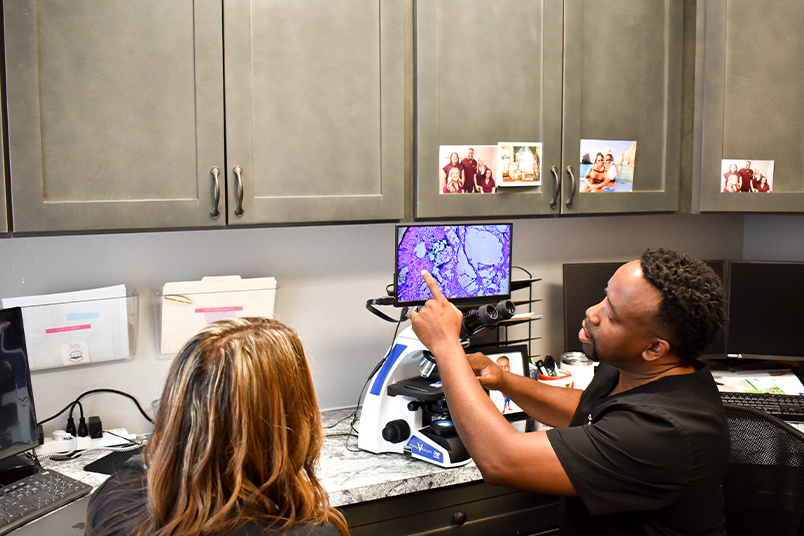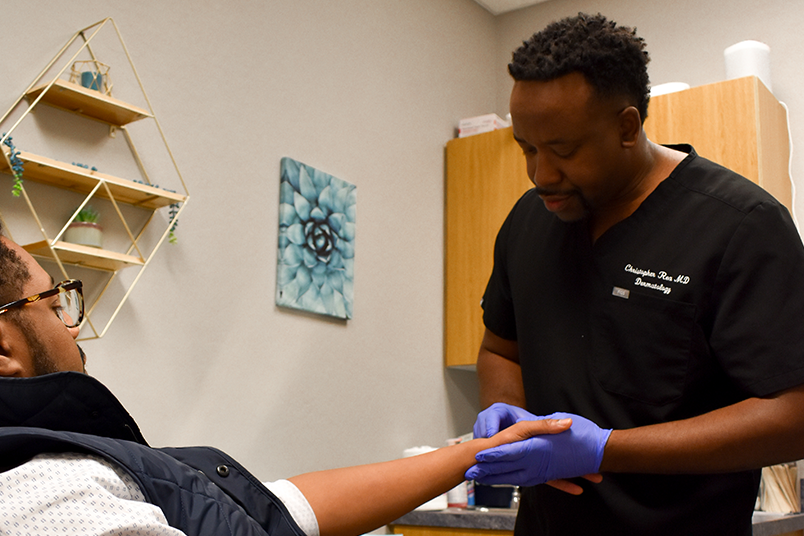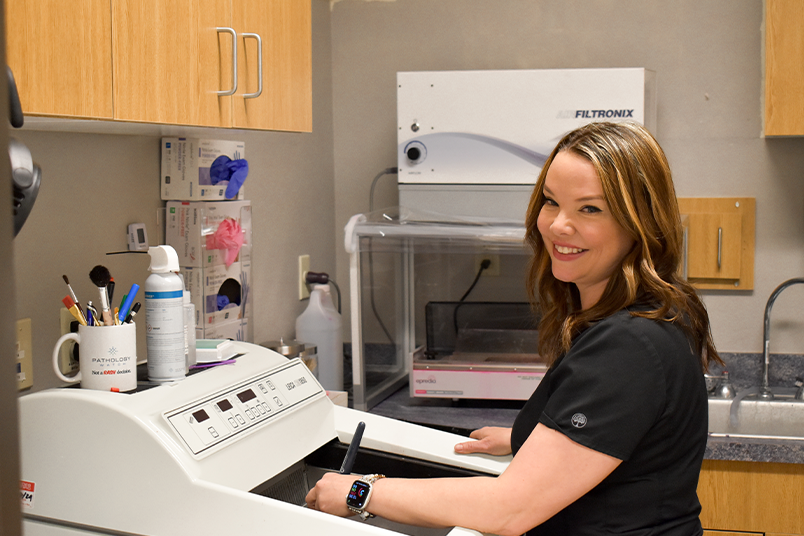Skin Cancer
Home > Skin Cancer
Worried you might have skin Cancer?
Enjoy the piece of mind that comes with getting your skin checked by a licensed professional.
What is Skin Cancer?
Skin cancer refers to the abnormal, uncontrolled growth of skin cells. One in five people will develop skin cancer in their lifetime, according to the American Academy of Dermatology. Fortunately, skin cancer is almost always curable if detected and treated early.



Frequently Asked Skin Cancer Questions
About Skin Cancer
Basal Cell Carcinoma
Squamous Cell Carcinoma
Melanoma
Risk factors include pale skin, family history of melanoma, being over 40 years old, and regular sun exposure. It is important to always use sunscreen when being exposed to the sun for extended periods of time, regardless of skin tone.
Skin cancer is most identifiable as a new or changed growth on the skin. You may notice this in different areas of the body and it is important to check yourself often. Although skin-cancer growths most commonly form on the scalp, face, lips, neck, chest, arms, hands or legs, they can occur anywhere. Important signs to look for are:
- Pearly or waxy bumps
- Flesh-colored or brown scar-like lesions
- Firm, red nodules
- Crusted, flat lesions
- Large brown spot with darker speckles
- Shiny, firm bumps
A mole that changes shape or color can also indicate skin cancer.
A – Asymmetry. Benign moles are usually symmetrical, so if you notice a large degree of asymmetry, it is important to have this looked at right away.
B – Borders. Cancerous lesions often have irregular borders.
C – Colors. If the mole or lesion is more than one color, this could be a sign of melanoma.
D – Diameter. Pay close attention to the size of the lesion and monitor any changes.
E – Evolving. If the mole or lesion has gone through any changes of asymmetry, borders, colors, or diameter, alert Dr Rex.

